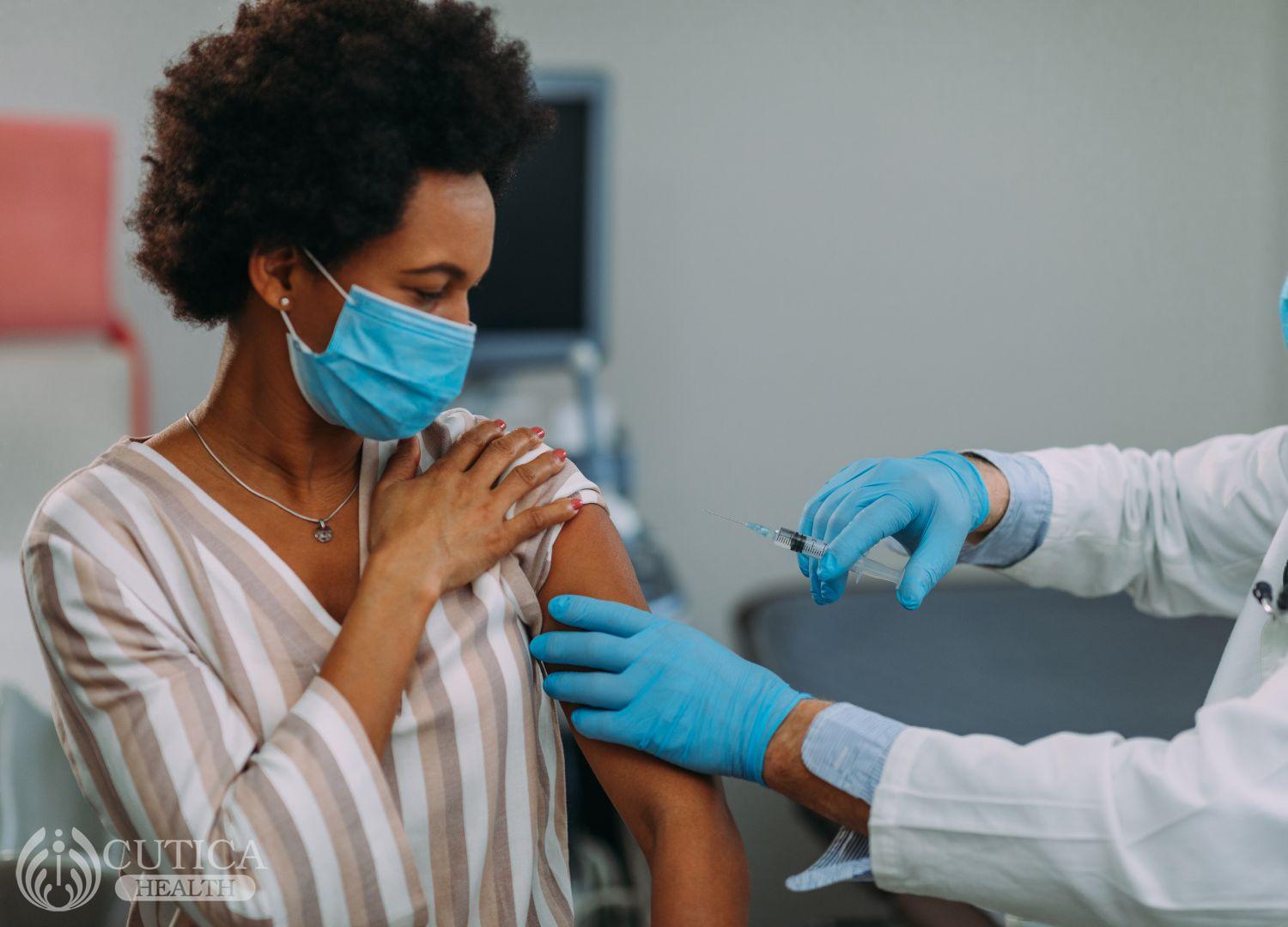What is the HPV vaccine?
The HPV vaccine contains proteins that are like those found in the HPV virus. It does not contain live virus particles, DNA, or genetic material that can cause HPV infection. This vaccine makes the immune system produce immune proteins that protect against HPV infection. The available HPV vaccines are effective against HPV types that are known to cause cervical cancer and other HPV-related diseases.
The HPV vaccine is typically administered through an injection, usually given in the upper arm or thigh. Usually, the HPV vaccination involves a series of two or three doses given over several months.

Why HPV vaccination in Nigeria?
Cervical cancer is a leading cause of cancer-related deaths among Nigerian women, with virtually all of these cases linked to HPV infections. Countries with effective HPV vaccination programs have seen dramatic reductions in the occurrence of cervical cancer. The best time to administer the HPV vaccine is during adolescence, before onset of sexual activity. This is crucial, as it can prevent HPV infections and subsequently lower the risk of developing cervical cancer later in life.
By preventing HPV infection, the vaccination provides a long-term solution to combat cervical cancer in Nigeria. Some sexually active females can also benefit from the HPV vaccine, even though not as much as those who receive it before becoming sexually active.
How to implement the HPV vaccination program in Nigeria.
The successful implementation of HPV vaccination programs in Nigeria requires strengthening the healthcare infrastructure, removing cultural barriers, and raising awareness through grassroots campaigns. This includes ensuring that vaccines are available and accessible, establishing a good system to distribute the vaccines, and training healthcare workers to administer and monitor the vaccination campaign.
The success of HPV vaccination programs also relies on raising awareness in communities about the importance and safety of the vaccine. Public health campaigns should focus on dispelling myths and misconceptions surrounding HPV vaccination, including concerns related to religious beliefs, vaccine safety, and efficacy.
Nigeria's diverse cultural landscape presents unique challenges for implementing HPV vaccination programs. In some communities, cultural norms and beliefs may hinder acceptance of the vaccine. To overcome these barriers, it is essential to involve cultural and religious leaders in the dialogue, emphasizing the potential life-saving benefits of HPV vaccination. Tailoring educational campaigns to specific cultural contexts, engaging community influencers, and utilizing local languages can help bridge the gap and foster acceptance across diverse populations in Nigeria.

Conclusion
HPV vaccination in Nigeria is needed to combat cervical cancer, a leading cause of death among women in the country. By implementing comprehensive vaccination programs and addressing challenges such as awareness, cultural barriers, and healthcare infrastructure, Nigeria can significantly reduce the burden of cervical cancer. This preventive approach will not only save lives but will also alleviate the economic and social burden associated with cervical cancer treatment. Embracing HPV vaccination is not a day too soon for Nigeria, as it paves the way for a healthier future for its population.
